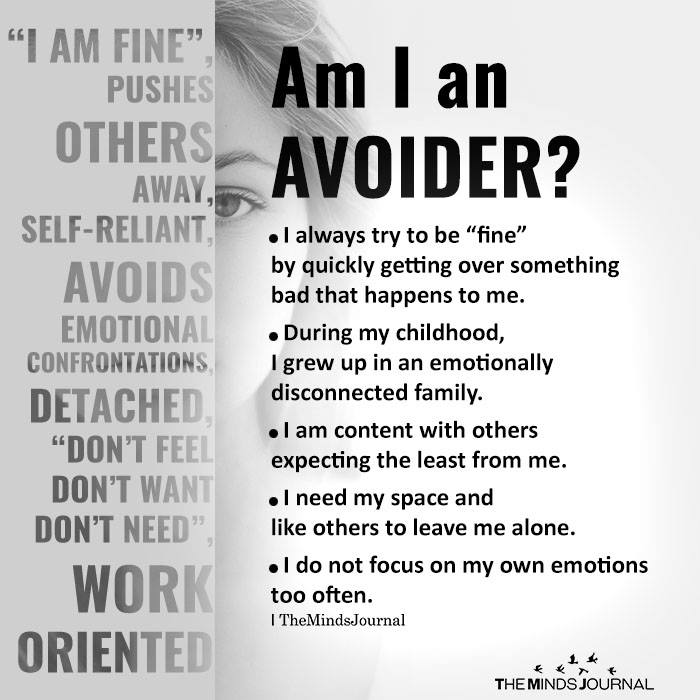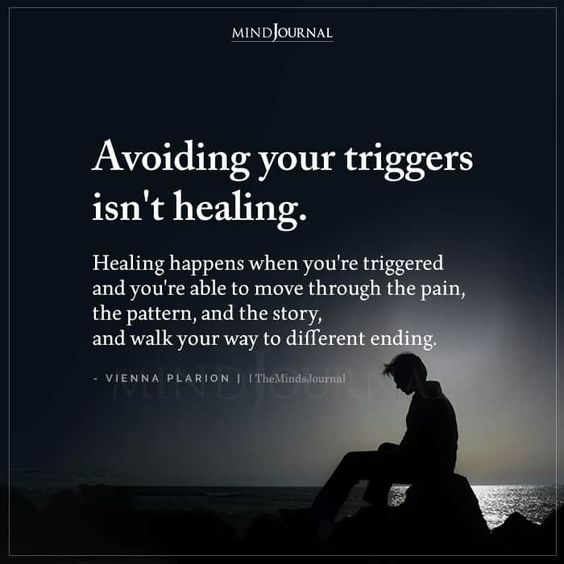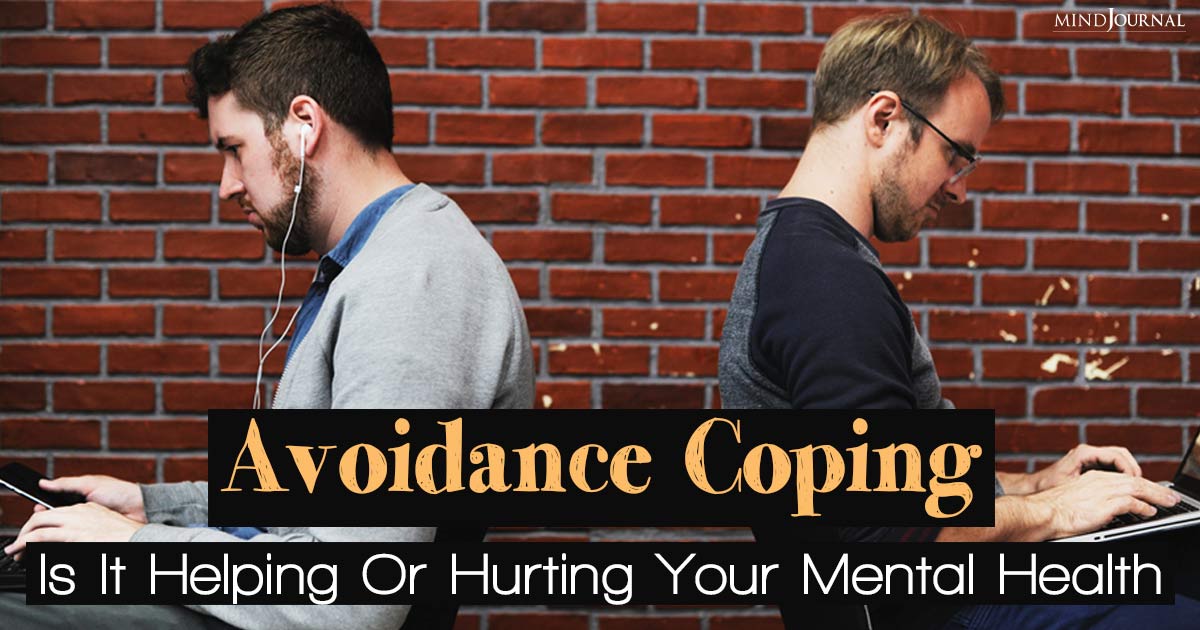Have you ever found yourself procrastinating or diverting your attention to avoid a challenging task or an uncomfortable situation? We’ve all been there. Let’s understand what is avoidance coping mechanism, how it manifests in our lives, and most importantly, how to deal with avoidance anxiety and build resilience.
What is Avoidance Coping Mechanism?
Avoidance coping, a common psychological phenomenon, is the tendency to evade or ignore stressors, problems, or emotions rather than dealing with them directly. While it may provide temporary relief, relying on avoidance coping mechanism can hinder personal growth and lead to increased anxiety and stress.
So what is avoidance coping? Avoidance coping is the deliberate and often automatic efforts to avoid situations, thoughts, or feelings that are perceived as threatening or distressing. It is a protective mechanism that aims to reduce immediate discomfort, but it can have long-term consequences on our well-being.

Common avoidance coping mechanisms include procrastination, denial, distraction, substance abuse, and social withdrawal. While these strategies may provide temporary relief, they prevent us from addressing the root causes of our stressors and hinder personal growth.
Now that we have defined what is avoidance coping, let’s see how avoidance is used as a coping mechanism and how to deal with avoidance anxiety.
Related: Loving Someone With Avoidant Attachment: 11 Practical Strategies For A Healthy Relationship
Using Avoidance as a Coping Mechanism
Avoidance is a common coping mechanism that people use to deal with challenging situations, emotions, or stressors. It involves deliberately staying away from people, places, thoughts, or feelings that trigger discomfort or distress.
Here are some key points about using avoidance as a coping mechanism:
1. Emotional Avoidance
People often use avoidance to escape from or suppress uncomfortable emotions such as fear, anxiety, sadness, or anger.
2. Temporary Relief
Avoidance can provide temporary relief from distressing feelings, making it a tempting coping strategy in the short term.
3. Long-Term Consequences
While avoidance may offer short-term relief, it can lead to long-term consequences, such as increased anxiety, unresolved issues, and hindered personal growth. Always keep this in mind when using avoidance as a coping mechanism.
4. Impact on Relationships
Avoidance can strain relationships when individuals distance themselves from others or avoid addressing conflicts.
5. Procrastination
Avoidance can manifest as procrastination, where individuals delay important tasks to avoid the associated stress or pressure.
6. Maladaptive Coping
While avoidance can be adaptive in some situations, excessive or chronic avoidance is considered maladaptive and may exacerbate problems.
7. Seeking Professional Help
When avoidance interferes with daily functioning or quality of life, seeking support from mental health professionals can be crucial.
8. Alternative Coping Strategies
Are you using avoidance as a coping mechanism? Developing healthier coping mechanisms, such as problem-solving, seeking social support, mindfulness, or therapy, can help individuals address challenges effectively.
9. Understanding Triggers
Recognizing the specific triggers for avoidance can help individuals address the root causes of their distress and work toward healthier coping strategies.
10. Balancing Self-Care
While avoidance can be a part of self-care, it’s important to find a balance between giving oneself a break and confronting challenging situations constructively.
Understanding avoidance as a coping mechanism is essential for personal growth and emotional well-being. While it may offer temporary relief, addressing the underlying issues and adopting healthier coping strategies is often a more sustainable and effective approach.
Related: 10 Signs Of A Weak Mindset: Is Your Mindset Holding You Back?

Role of Avoidance Anxiety
Avoidance anxiety is the fear or apprehension that arises when faced with situations or tasks that we actively avoid. It can manifest as a nagging feeling of unease, restlessness, or even physical symptoms like increased heart rate or sweating.
The more we avoid, the stronger the anxiety becomes, reinforcing the cycle of avoidance. Breaking free from this cycle requires courage and a willingness to confront discomfort head-on.
What are Common Avoidance Coping Strategies
Common avoidance coping strategies can vary from person to person, as individuals may develop unique ways to avoid confronting their stressors or uncomfortable emotions.
However, if you are wondering what are common avoidance coping strategies, here are some of the most commonly observed avoidance coping mechanism strategies:
1. Procrastination
Delaying tasks or responsibilities until the last minute or indefinitely is a classic avoidance coping strategy.
By putting off important tasks, individuals temporarily alleviate the discomfort associated with the task, but this behavior can lead to increased stress and diminished performance in the long run.
2. Denial
Denial involves deliberately refusing to acknowledge or accept the existence of a problem or an uncomfortable reality. It is a defense mechanism that shields individuals from facing difficult emotions or situations.
However, denying the existence of a problem prevents individuals from effectively addressing and resolving it. This is one of the primary answers to what are common avoidance coping strategies.
3. Distraction
Engaging in activities or behaviors that divert attention from the stressor or uncomfortable emotions is another common avoidance coping strategy. This can include excessive use of social media, binge-watching TV shows, playing video games, or indulging in any activity that serves as a temporary escape from reality.
4. Substance Abuse
Some individuals turn to substances such as alcohol, drugs, or even excessive food consumption as a way to numb uncomfortable emotions or avoid dealing with stressful situations.
While substances may provide temporary relief, they can lead to dependency, health issues, and exacerbate the underlying problems.
Still wondering what are common avoidance coping strategies? Read on.
5. Avoidance of Social Interactions
Social withdrawal is a strategy in which individuals intentionally isolate themselves or avoid social interactions to evade potential stressors, conflicts, or emotional discomfort. This can lead to feelings of loneliness, further exacerbating the avoidance coping cycle.
6. Rationalization
Rationalization involves creating justifications or excuses to minimize the significance of a stressor or to avoid taking responsibility for one’s actions or choices.
By rationalizing, individuals attempt to convince themselves that their avoidance behavior is justified or that the problem is not as serious as it seems.
7. Emotional Suppression
Avoidance coping mechanism can also manifest as emotional suppression, where individuals consciously or unconsciously suppress or ignore their emotions, especially negative ones.
This can lead to emotional disconnection, difficulty expressing emotions, and an accumulation of unresolved emotional distress.
8. Seeking Constant External Validation
Some individuals rely heavily on external validation and approval to boost their self-esteem and avoid confronting their own insecurities or doubts.
By seeking constant validation, they can temporarily mask their own self-doubt or fear of failure.
9. Escape into Fantasy Worlds
Creating or immersing oneself in elaborate fantasies or daydreams is another avoidance coping mechanism. By escaping into fantasy worlds, individuals can temporarily detach from their reality and the challenges it presents.
While this can provide temporary relief, it can hinder their ability to effectively cope with real-life situations.
It’s important to note that while these avoidance coping strategies may offer temporary relief, they often perpetuate the underlying problems and hinder personal growth. Developing healthier strategies to confront and manage stressors is crucial for long-term well-being and resilience.
Related: Avoidant Attachment Style: How To Love And Deal With An Avoidant Partner
Recognizing Avoidance in Your Life
To effectively deal with avoidance coping, it is essential to recognize its presence in our lives. Reflect on your behaviors and emotions when faced with challenging situations.
Do you find yourself constantly delaying tasks or avoiding conversations that make you uncomfortable? Are you relying on distractions or substances to escape negative feelings?
Acknowledging these patterns will help you gain insight into your avoidance coping mechanism and take the necessary steps towards change.

Consequences of Avoidance Coping Mechanism
While avoidance coping may provide short-term relief, it often leads to a range of negative consequences. By avoiding challenges, we miss out on opportunities for personal growth and learning.
Unresolved stressors can accumulate over time, leading to increased levels of anxiety, depression, and lowered self-esteem. Additionally, avoidance coping can strain relationships and hinder our ability to develop effective problem-solving skills.
It is crucial to understand these long-term consequences to motivate ourselves to break free from avoidance patterns.
How to Deal with Avoidance Anxiety
Here are a few helpful strategies that can help you to overcome avoidance anxiety –
1. Acceptance and Mindfulness
Practicing acceptance involves acknowledging and embracing your emotions and experiences without judgment. Mindfulness techniques, such as deep breathing exercises and meditation, can help you stay present and reduce avoidance anxiety.
By cultivating a non-judgmental attitude towards discomfort, you can gradually develop the resilience to face challenging situations without relying on avoidance.
2. Breaking Tasks into Smaller Steps
Overwhelming tasks often fuel avoidance coping. To counter this, break down complex tasks into smaller, more manageable steps.
By focusing on one step at a time, you can reduce anxiety and gain a sense of accomplishment, building momentum towards completing the entire task. This is how to deal with avoidance anxiety.
3. Seek Support
Sharing your struggles with a trusted friend, family member, or therapist can provide valuable support. They can offer guidance, encouragement, and accountability, helping you navigate through avoidance anxiety. Remember, you don’t have to face challenges alone.
4. Challenging Negative Thoughts
Avoidance coping mechanism often stems from negative beliefs and thoughts about ourselves or the situation at hand. Challenge these negative thoughts by examining the evidence supporting them and considering alternative perspectives.
Replace self-defeating thoughts with more realistic and empowering ones to reduce avoidance anxiety.
5. Gradual Exposure
Gradual exposure involves confronting feared or avoided situations in a controlled and gradual manner. Start by exposing yourself to mildly uncomfortable situations and gradually work your way up to more challenging ones.
This technique allows you to build confidence and tolerance, reducing avoidance anxiety over time.
6. Celebrate Progress
Recognize and celebrate your progress, no matter how small. Overcoming avoidance coping is a journey, and each step forward is a significant achievement. Acknowledge your efforts and reward yourself for taking proactive steps towards facing challenges head-on.
Related: Why Do You Always Fall For Emotionally Unavailable Partners?

Takeaway
Avoidance coping may provide temporary relief from discomfort, but it ultimately obstructs personal growth and perpetuates anxiety and stress. By understanding the nature of avoidance coping mechanism and implementing effective strategies, we can break free from the cycle of avoidance anxiety.
Embrace challenges, seek support, and cultivate resilience. Remember, the path to personal growth lies in facing our fears, not in avoiding them.
Frequently Asked Questions (FAQs):
What are examples of avoidance coping?
Examples of avoidance coping include procrastination, denial, substance abuse, emotional suppression, and withdrawing from social interactions or responsibilities.
What are examples of avoidance behaviors?
Examples of avoidance behaviors include procrastination, evasion of difficult conversations, substance abuse, staying in isolation, and refusing to face fears or anxieties.
Why is avoidance my coping mechanism?
Avoidance may be your coping mechanism due to fear of discomfort, anxiety, past trauma, or habit. It offers temporary relief but can hinder growth.










Leave a Reply